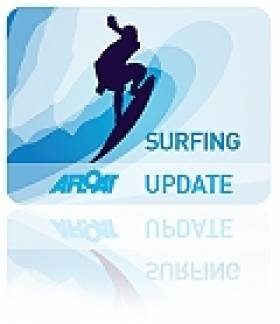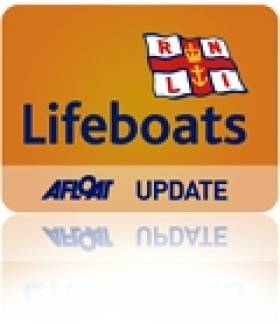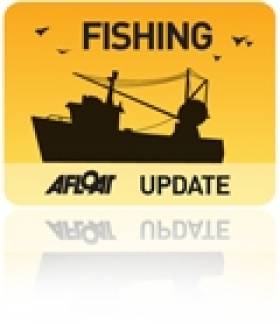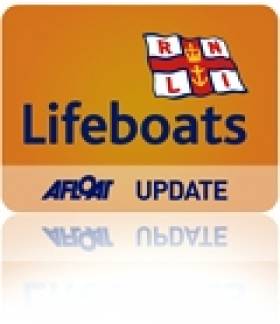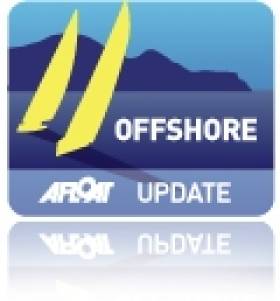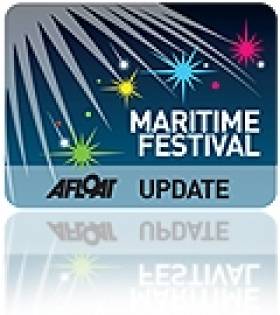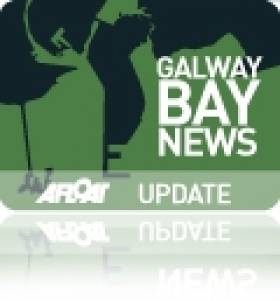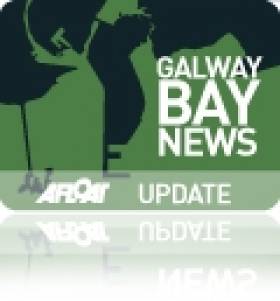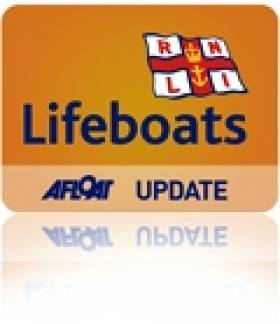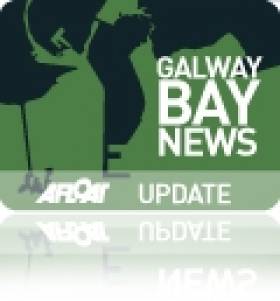Displaying items by tag: Galway Bay
Galway Windsurfers Set Paddle Board Record
#Surfing - A trio of Galway windsurfers completed the 95km round trip to and from the Aran Islands last weekend - setting a new Irish record for stand-up paddle boarding in the process.
The Irish Times reports on the successful adventure by Dan Gardner, Daniel King and Joe Gallagher, who embarked on the challenge to raise funds for the Galway RNLI lifeboat service.
Setting out before 5.30am on the morning of Saturday 8 June, they returned to the Galway Docks before 11pm that night - stopping at the halfway mark for lunch on Inis Mór.
The trio are each believed to have covered some 4,000 strokes an hour to make their record time of 17 hours 33 minutes. The Irish Times has more on the story HERE.
In other surfing news, the Sunday Independent reports on a website that's seeking to connect surfers of all levels with the right waves for them.
Waterford-based Liam Sinnott set up Swellseekers.ie with business partner James Hassey two years ago, filling a gap in the market for booking surfing trips online at a time when Ireland was only just emerging as a world-class surfing destination.
Though the site currently only takes bookings for surfing and other watersports in the Waterford area, Sinnott says he hopes to expand his site's scope nationwide by next year to serve a growing wave-riding community of "50,000 surfing all year round".
Galway RNLI Rescues Man From Boat At Barna Rocks
#RNLI - Galway RNLI came to the rescue of a man whose 25ft sailboat almost hit rocks off Barna in Galway Bay on Sunday morning (9 June).
The alarm was raised by a member of the public who spotted the boat veering dangerously towards rocks south east of Barna Pier just before 11am. He contacted the Irish Coast Guard, who sought the assistance of Galway RNLI.
The volunteer lifeboat crew arrived at the scene at 11.14am and towed the sail boat out of difficulty. There was one person on board.
Galway RNLI lifeboat operations manager Mike Swan says with so many people on the water in this good weather, it's important that people be aware of the dangers in their local area.
The lifeboat crew on this call out were helmsman Declan Killilea, David Oliver, David Badger and Martin Oliver. Conditions were flat and calm.
#FishFarm - The Galway Bay fish farm debate rolls on as Ireland's Marine Minister says there will be no damage to the environment or wild fish stocks.
Simon Coveney was speaking to Galway Bay FM last week on Bord Iascaigh Mhara's (BIM) proposals for a deep sea salmon farm off the Aran Islands.
The 500-hectare scheme would be the largest of its kind in Europe and has the potential to create hundreds of jobs in the region. A decision on BIM's licence application for the development is set to be made in the coming months.
But the plans have been opposed by conservationists, local anglers and the even the State fisheries body.
Last Wednesday 22 May, Inland Fisheries Ireland (IFI) published an FAQ on its concerns regarding the Galway Bay fish farm proposal, its own submission regarding the environmental impact statements attached to the licence application, and its reasons for avoiding a public debate on the issue.
"IFI is satisfied that its submission, which is supported by international scientific studies, clearly sets out its concerns and recommended measures for mitigation," it says.
Stranded Students Rescued From Island By Galway RNLI
#RNLI - Galway RNLI came to the rescue of three students who got stranded on Hare Island yesterday afternoon (Monday 13 May) after getting caught in the tide off Ballyloughane Beach.
The two young women and young man, in their late teens/early 20s, had gone for a walk and were spotted waving from the island by a local resident who contacted the emergency services and Galway RNLI.
Conditions at the time (around 4pm) were changeable with heavy showers.
Three volunteer members of the inshore lifeboat crew were working in the vicinity of the station at the time and launched the boat in six minutes.
The three students were picked up safely and brought back to the lifeboat station at Galway Docks where they were warmed up and given tea. They did not require medical attention.
The lifeboat crew on this callout were helm David Oliver, Dara Oliver, David Badger and Olivia Byrne.
Lifeboat shore crew John Bryne said: "The three students did the right thing waiting on the island and not attempting to get off."
It's not the first time that people have been stranded by the incoming tide on Hare Island, as Galway RNLI were called to a similar incident in September 2010.
The Discover Ireland sailing team that featured in WM Nixon's Saturday Sailing blog debuted on Galway bay in the Clarenbridge trophy offshore race yesterday.
The race is sailed over a course from the GBSC start line at Renville to Finis Rock off Inis Oir then onto Canon Rock in the entrance to Rossaveal Harbour before a finish in Renville total distance approx 60 miles.
Yesterday's race saw winds between 25-40 knots which made for a tough beat all the way to Inis oir, but Discover Ireland stretched its lead all the way out of the bay on its nearest competitor "Ibaraki".
Drivers Ben Scallan and Neil Spain made light work of the beat with a full main and a no 4 jib, things eased a little for the fetch up to Rosaveal, but the team still managed to break a kicker and lost instruments temporarily in the lumpy seas encountered.
Then it was kite up in winds which were now sitting between 30-35 knots for a fantastic reach/run home to renville.
Boat speed was sitting above 12 knots the entire time with speeds of up to 18 knots in the heavier gusts.
The boat loved the conditions which is a great reflection on this 15–year–old Stimpson design.
They completed the course in 7 hours 7 minutes in first place and with line honours and the race was an excellent shakedown for a busy season ahead.
The boat's next trip is the delivery to the Scottish series leaving Galway this Friday so skipper Aodhan Fitzgerald is hoping that the present strong westerly flow will abate.
An Tostál Fest Rescheduled For End of May
#AnTostal - Galway's An Tostál maritime festival will take place on 26 May after strong winds forced the postponement of the originally scheduled date last Sunday, according to the Galway Independent.
Cian O’Lorcáin of the organisers said the decision to delay the event was made "for the benefit of water safety. We were really thinking of the crews on the water because, with the winds, it could have proved hazardous...
"Safety is the number one thing for us so when that couldn't be guaranteed, we decided to postpone."
As previously reported on Afloat.ie, the festival - reactivated in 2011 after a 50-year gap - celebrates Galway's maritime traditions with currach racing along the Salthill promenade. This year's event is also set to feature a Galway Hooker parade of sail.
BIM Pulls Out Of Galway Bay Fish Farm Meeting
#FishFarm - Galway Bay FM reports that Bord Iascaigh Mhara (BIM) has pulled out of a public meeting on the proposed Galway Bay deep sea fish farm scheduled for this evening (25 April).
The Sinn Féin-organised meeting at the Westwood Hotel in the city tonight was intended to be a debate hearing arguments from both sides regarding the controversial aquaculture project, according to the Galway Advertiser.
However, a statement issued by BIM - which is proposing the salmon farm scheme - claims that "recent statements from some angling groups" have made it impossible to provide a public platform for its side of the issue.
If the project goes ahead, the 500-hectare facility would be the largest of its kind in Europe. But it has faced strong opposition from local anglers and the State fisheries body Inland Fisheries Ireland over the risk posed by sea lice.
As previously reported on Afloat.ie, the proposed fish farm off the Aran Islands has even put local TDs at odds over questions of the potential benefits and hazards.
Meanwhile, the Galway Advertiser says that opposition group Galway Bay Against Salmon Cages plans to lodge their protest at the constituency office of Taoiseach Enda Kenny in Castlebar this Saturday 27 April as part of a nationwide campaign.
#GalwayBay - A Galway City Council official has denied claims that raw sewage from a treatment plant at Mutton Island is being discharged into Galway Bay.
As the Galway Advertiser reports, Ciarán Hayes told a special meeting of the council last Monday 15 April that he "would not like the impression to go out that we would allow sewage to be discharged, it's not".
Hayes was responding to questions from Cllr Catherine Connolly with regard to tenders issued for the upgrading of the treatment plant, which forms part of the Galway Main Drainage Stage 3 and which has been approved for funding from the Department of Environment.
He added that the current system is licences by the Environmental Protection Agency (EPA) and "is in accordance with industry best practice".
Meanwhile, the meeting also discussed a proposed extension of pedestrian access to Mutton Island lighthouse, which as previously reported on Afloat.ie was opened to tour groups last year after extensive refurbishment since 2005.
The Galway Advertiser has more on the story HERE.
Aran Islands RNLI Rescue Fishermen in Galway Bay
#RNLI - Aran Islands RNLI in Galway Bay assisted six fishermen from a 24m trawler yesterday Thursday 18 April.
The volunteer lifeboat crew launched their all-weather lifeboat at 4.20pm following a report that a fishing vessel, the Archangel, with six crew on board had got into difficulty and broken down one mile north west of Inishmore.
There was a six-metre swell at the time with a force seven to eight wind.
The lifeboat crew under coxswain John O’Donnell arrived on scene accompanied in the air by Irish Coast Guard helicopter Rescue 115 - the subject of its own documentary TV series currently showing on RTÉ One - and established a tow line removing the vessel from any immediate danger.
The trawler was then towed back to Rossaveal in Connemara.
Speaking following the call-out, Aran Islands RNLI lifeboat operations manager Michael Hernon said: "Thanks to the speed and efficiency of the crew in launching the lifeboat, we were able to arrive on scene in good time to assist the fishermen and successfully tow the trawler safely to shore."
Groups Appeal For Clarity Over Galway Bay Fish Farm Plans
#FishFarm - Groups opposed to the controversial deep-sea fish farm in Galway Bay have written to TDs asking them to bring clarity to the growing conflict over the proposals.
As the Southern Star reports, the groups have asked for a review of the current licensing requirements for aquaculture schemes to ensure that the process is transparent and open to independent review - amid news that both local TDs and State agencies are squabbling over the issue.
"To have a single minister responsible for all these stages of an industry that has such serious pollution issues associated with it, as well as the potential to devastate valuable salmon and sea trout stocks, is inappropriate and open to abuse," argues Alec O'Donovan of Save Bantry Bay, one of the groups in an alliance that include local tourism, angling and environmental interests.
Group chairman Kieran O'Shea singled out for criticism the Department of the Marine's apparent determination to push forward with Bord Iascaigh Mhara's (BIM) fish farm plans in spite of a moratorium on further development of salmon farming three years ago at EU level.
"This not only makes a mockery of EU law but highlights a worrying lack of concern for the environment," said O'Shea.
Meanwhile, another opposition group has spoken out over a letter of support for the fish farm plans by Irish seafood producers and other businesses.
According to the Galway Independent, Brian Curran Galway Bay Against Salmon Cages (GBASC) claimed the letter - signed by 43 firms, only six of which are directly involved in food production in Galway - was a "set-up".
A spokesperson for BIM dismissed Curran's comments as being "in very poor taste" in seeking "to undermine the intentions or credibility of anyone who would go out of their way to place their support for the proposal 'on the record'."
As previously reported on Afloat.ie, the 500-hectare development off Inis Óirr in the Aran Islands would be the largest of its kind in Europe.



























